ReservationSearch and reserve rooms
Click here to confirm, change or cancel your reservation
提携法人専用予約
2024.07.15
The delicious taste of natural ingredients will satisfy both your body and mind. A challenge packed into one bowl of "Wolf Soup"
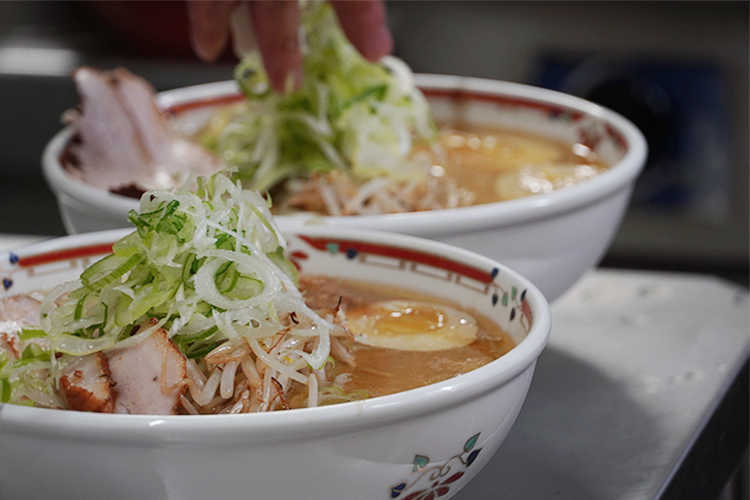
"Sapporo ramen" is a standard Sapporo gourmet food that is widely known throughout Japan. Its origins date back to the appearance of ramen stalls just after the end of the war.
Vegetables vigorously stir-fried in a wok, thick, yellow, curly noodles that are easy to swallow, and soup that warms up a cold body. Sapporo has a strong image of miso ramen, but ramen lovers and passionate people continue to pursue "deliciousness" in the soup, noodles, and ingredients used, and nowadays various flavors and styles are created by adding their own unique arrangements.
"Wolf Soup" is loved for its "miso specialty"
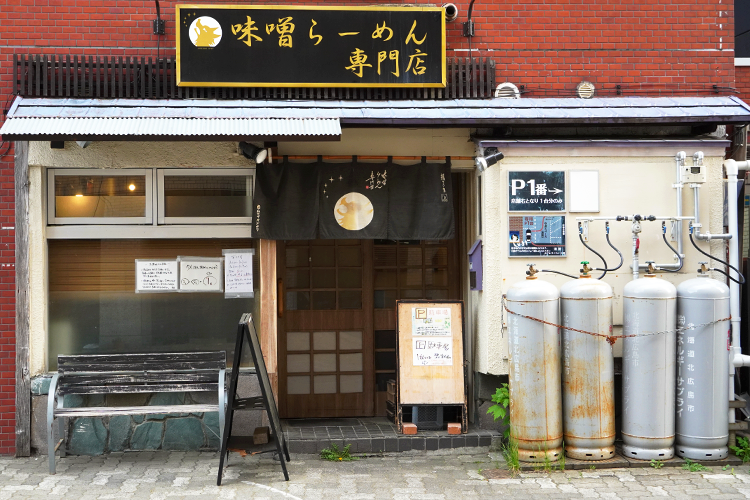
Located just a few minutes' walk from the hotel is Okami Soup, a miso ramen specialty shop. The owner, Takeshi Washimi, trained at the famous Sumire, one of the shops that influenced the history of Sapporo ramen. After working at a food stall, the shop opened in 2000.
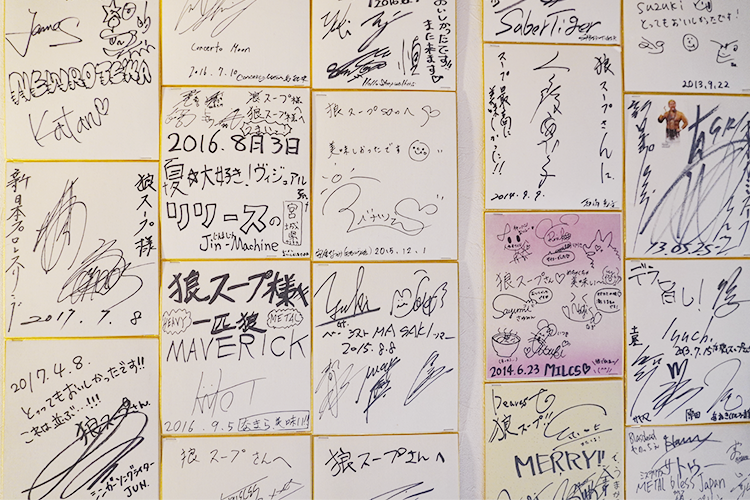
When you pass through the black curtain decorated with wolf illustrations, the ceiling is covered with colored paper written by artists and famous people. It's as if the "warm moments" people have spent at the cafe come to mind.
Since its establishment, "Okami Soup" has steadily captivated people. We took a closer look at its appeal and the behind-the-scenes of its new challenge.
Giving back by surpassing "great beings"
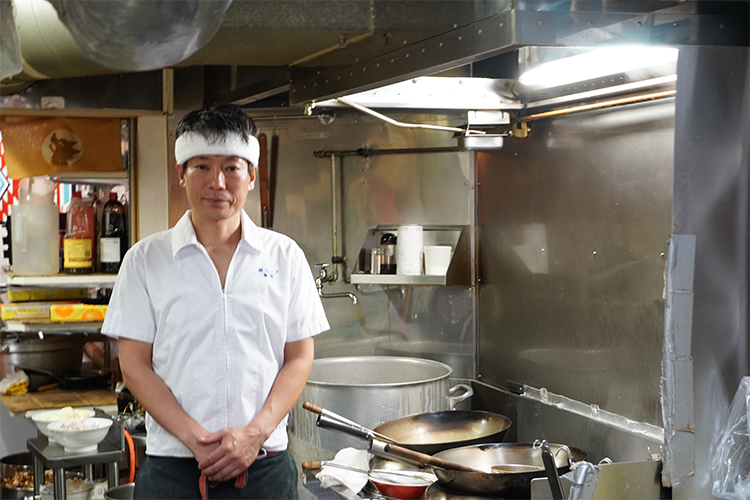
"I thought about how to use miso to make ramen more delicious every day, as if it were a lover. I've been working with miso for over 20 years, so I think there are some things about miso that I've dug deep into and can see."
Sumi-san is from Nagano Prefecture and grew up in an environment where delicious miso such as Shinshu miso was readily available. He says that ramen was his "favorite treat" when he was young. He remembers the simple happiness of ordering delivery from a set meal restaurant and eating it with his family. After this formative experience, he eventually set out on the path of ramen.
He says that he chose Sapporo because of the similar natural environment and atmosphere of Nagano, where he lives, and also because of the support he received from his senior apprentice and his master.
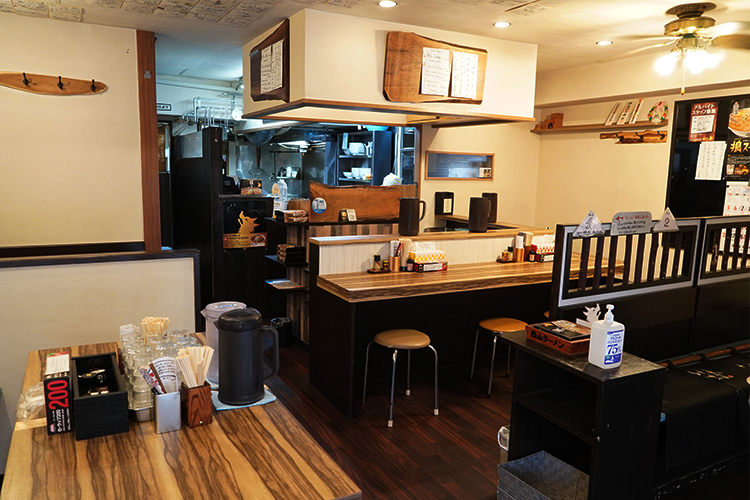
While some of the restaurants that have separated from Sumire have faithfully retained its flavors and techniques, Okami Soup aims to "surpass Sumire, which has undergone extensive training."
"I think that surpassing my master is a way to repay him."
He actually declared this to his master, and from his words you can see his determination to create new value while valuing what he has learned.
Awareness of food-related issues drives the movement
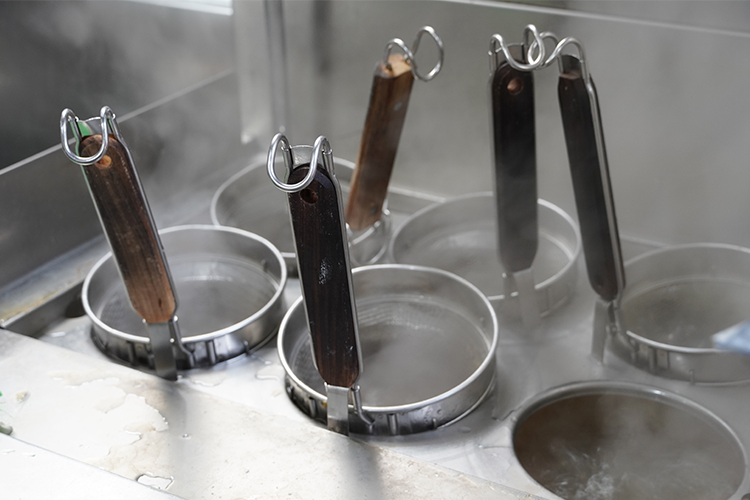
Since the establishment of the restaurant, Sumi has been working with ramen, and at times engaging in dialogue with himself, searching for "what only he can do."
As someone involved in the culture of "Sapporo Ramen," I have begun to pay attention to "food-related issues" such as allergies and illnesses. I have begun the challenge of "making ramen that is more health-conscious" while still maintaining its deliciousness.
"What do we eat to survive?" The COVID-19 pandemic has led her to go back to the basics and think more deeply about this. "Eat natural foods, get plenty of sleep, and laugh a lot. I want to convey that valuing such basic activities leads to good health," she said.
Taking on the challenge of "making healthy ramen"
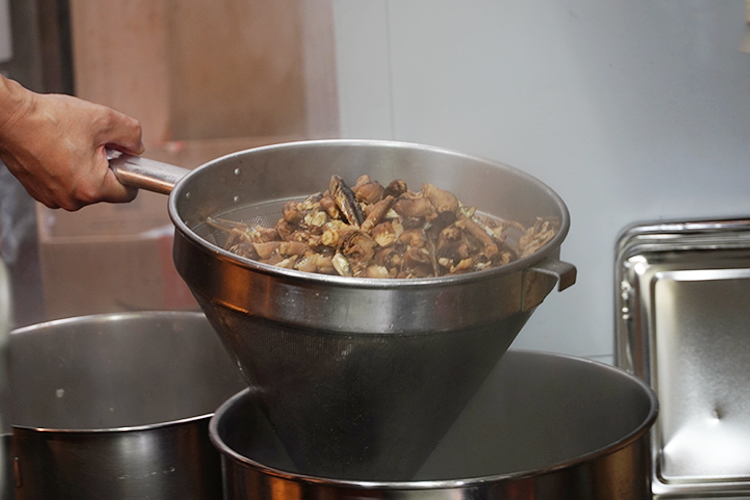
Making soup stock
Wolf Soup's commitment to the ingredients is also reflected in the way they use different types of water. Hydrogen water is used for drinking and making stock, alkaline ionized water is used for cooking soup and bones, and tap water is used to boil noodles. The water is used in different ways depending on its characteristics.
The stock is made from four different ingredients - seafood such as kelp, shiitake mushrooms, dried sardines, scallops, and clams, vegetables such as potatoes, Chinese cabbage, and onions, and bones such as pig's feet and backbones - and then all of them are combined at the end.
By adjusting the temperature to bring out the flavor of each ingredient, such as "cooking delicate ingredients at a low temperature," "slowly over low heat," and "cooking over medium heat for a long time without clouding the soup," and by increasing the amount of natural ingredients rather than relying on synthetic seasonings, we create a soup with a strong dashi flavor.
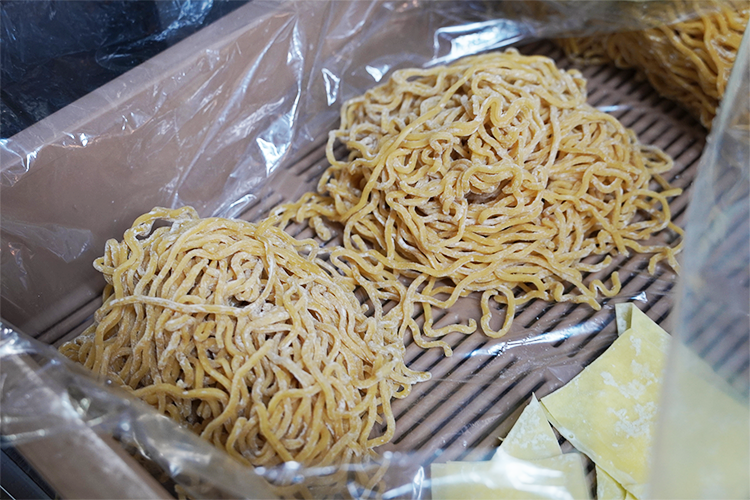
The noodles are made from a blend of Hokkaido wheat and spelt, an ancient variety said to be highly nutritious, and their natural sweetness is balanced with the miso.... Like fitting together the pieces of a puzzle, Sumi works with each ingredient one by one in pursuit of the ideal shape.
"It's important to eat organic food, but I also think it's important to eat a variety of foods, so I try not to be biased."
While maintaining a good balance, he also expresses his enthusiasm, saying, "I want to re-examine the soup and make it closer to a more natural form."
A space that gives you energy and makes you feel like you belong
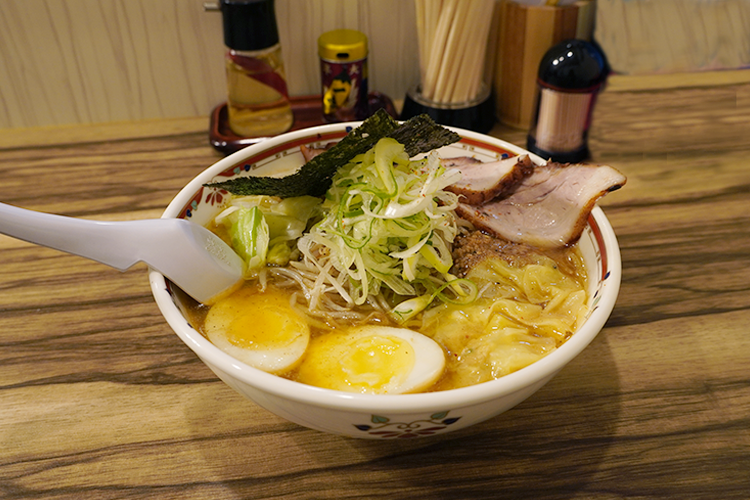
The ramen menu has only two types: "Miso Ramen" and "Special Miso Ramen (pictured)." The "Special" is topped with a boiled egg made from free-range fertilized eggs and a selection of the day's specials.
The bowl that was brought to us was made with three kinds of miso, including Shinshu miso, which had been grown in precious wooden barrels, and was flavored with spices and ginger, making it a satisfying bowl. While being particular about the ingredients, the restaurant's attitude of valuing traditional "Sapporo ramen" remains unchanged, for example by thoroughly frying vegetables in lard.
"Everyone is fighting every day at work and such, isn't it? In the midst of all that, I think there's a place where you can come and feel energized, a place where you can reset, or a favorite restaurant. I hope that Wolf Soup can become a space that can give you a little energy, like a power spot."
Besides running the store, Sumi-san is also actively involved in volunteer activities such as setting up stalls at events, running children's cafeterias, and giving classes at schools. By building connections and interacting with the local community, we can all grow together.
Behind this "new challenge" was a passion for the ingredients and a heart-warming love for people.
Miso ramen specialty store "Okami Soup"
Address: 1F Takairebunheim, 1-5-1 Minami 11-jo Nishi 1-chome, Chuo-ku, Sapporo, Hokkaido
Access: 5 minute walk from Nakajima Park Station
HP: http://www.ohkami-soup.net/
SNS: https://www.instagram.com/ohkamisoup_official/
*For details on business hours and holidays, please check the link above.




